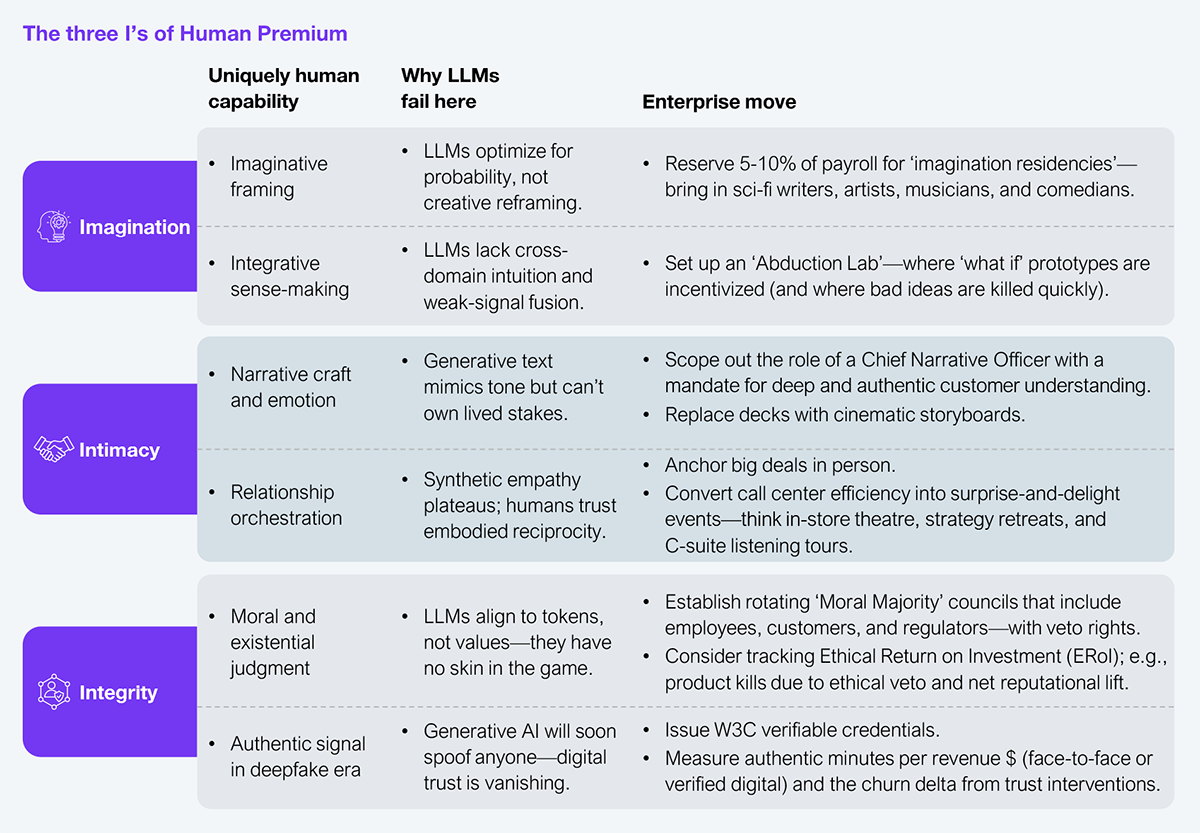The rise of vibe coding and agentic AI makes it cheaper and easier than ever for innovators to realize their business ambitions. They can now build at high speed and low cost outside your organization. Leaders must adapt their enterprises to welcome and reward AI-powered people—or become talent’s last resort.
This emerging reality was thrown into sharp relief by the Imagination in Action event The Next Revolution in AI, hosted over two days at Google’s Sunnyvale campus, NVIDIA’s HQ in Santa Clara, and Stanford University from September 8 to 9. This unique summit brought together leaders and visionaries, many from firms at the bleeding edge of AI in Silicon Valley, authors, deep thinkers, and the only analyst firm among the speakers: HFS Research. We presented on the $1.5 trillion opportunity for Services-as-Software™.
At every turn, we met young entrepreneurs rejecting the access to resources that enterprises offer. Instead, they were going it alone, combining vibe coding and agentic AI to build code and manage their businesses.
Take, for example, Michael Chen. He dropped out of MIT (Massachusetts Institute of Technology) to set up Yondu, a platform to enable AI-infused robotics at scale. See Michael share more on Yondu here on LinkedIn. Also, consider Elijah Muraoka, who launched his start-up, Soshi (a Services-as-Software AI employee for social media marketing), during his third year at Northeastern University. Others we met were quitting jobs at big names like Microsoft, AWS, and Google to found their own businesses.
The decline of enterprises as the preferred employment option for young people is long recognized. An HFS survey of 1,800 IT and business services employees in September 2022 found that 21% dreamed of joining a start-up, while 21% wanted to start their own company. Only 11% saw their current employer as their dream job.
The rise of accessible new AI technologies lowers the risks for those who “dream” of working for a start-up or building their own. During the two days of the Silicon Valley event, it became clear that the rise of vibe coding and AI-powered agents closed the gap on the resources and capability advantages enterprises have traditionally held. Meanwhile, enterprises rumble on oblivious, slamming doors on entry-level roles (graduate unemployment is running at 7% in the US—ahead of the national average) while wondering why they can’t attract or keep “the right talent.”
It used to be cheaper and easier to get stuff done inside large organizations. That was their point. Firms must now ask themselves if that is still the case, and if not, how they can return to relevance.
With the rise of capabilities to enhance and accelerate an individual’s ability to make their dreams happen, enterprises must seek to create an environment where imagination can flourish and be rewarded.
The focus must shift from process improvement to people improvement. Augmenting your people with agents and vibe coding gives every employee their own Iron Man suit to complete ever more extraordinary work. Retaining those who deliver extraordinary results will mean rethinking reward mechanics, such as offering equity.
Learn more about the role of agents, vibe coding, and LLMs (large language models) in the HFS Services-as-Software flywheel, here: Vibe coding is the production engine that turns the Services-as-Software vision into reality.
But capability without intent leads to a lot of expensive tech without outcomes. HFS has previously emphasized the importance of doubling down on The Human Premium in the age of the LLM; see our Point of View, Build your Human Premium to win in the age of LLMs. See Exhibit 1, which calls out imagination as the key to unlocking market-beating differentiation.
Resourcing to amplify imagination is an advantage that enterprises can offer that start-ups will struggle to compete with.

Source: HFS Research, 2025
For decades, the lure of resources and scale has been enough to attract smart people into enterprises. AI has eliminated that advantage. To keep pace, firms must see every individual as a potential superstar: powered by vibe coding, supported by agents, and resourced to amplify imagination.
Register now for immediate access of HFS' research, data and forward looking trends.
Get StartedIf you don't have an account, Register here |
Register now for immediate access of HFS' research, data and forward looking trends.
Get Started